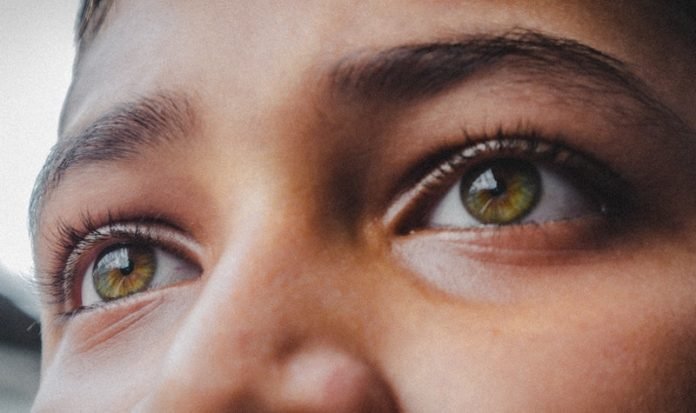
Macular degeneration, which affects 200 million people worldwide, most of whom are over 60 years old, causes patients to gradually lose sight in the center of their visual field.
It’s debilitating because the remaining peripheral vision has low resolution. These patients have difficulty reading, recognizing faces and performing other tasks of daily living.
The condition occurs when the photoreceptor cells in the center of the retina, known as the macula, degenerate.
When photoreceptor cells degrade, the brain no longer receives the information it needs to create a detailed and coherent picture.
Current treatments for macular degeneration—such as vitamins and drugs targeting blood vessels that invade the macula and block vision—can slow the visual decline.
But they can’t stop the degeneration or restore sight once the photoreceptors are gone.
Recently, Stanford researchers found that with a thin, pixelated chip and specially designed glasses, they could restore limited vision in the center of the visual field of patients suffering from vision loss.
In a recent study, the same team found that this prosthetic vision naturally integrated with the patients’ peripheral vision, which was unaffected by the disease.
The patients could simultaneously identify the orientations of colored lines in the center and sides of their visual field. The results suggest that the treatment could be used to restore functional vision.
The research is published in Nature Communications and was conducted by Daniel Palanker et al.
The team says to make it really useful and applicable to many patients, they need to improve the resolution of the device.
If you care about the vision, please read studies about eye disease that may show higher risk of dementia, and this vitamin B3 may help treat vision loss.
For more information about eye health, please see recent studies that pure cocoa may improve your eye sight in daylight, and results showing older people need to pay attention to this dangerous eye disease.
Copyright © 2022 Knowridge Science Report. All rights reserved.



